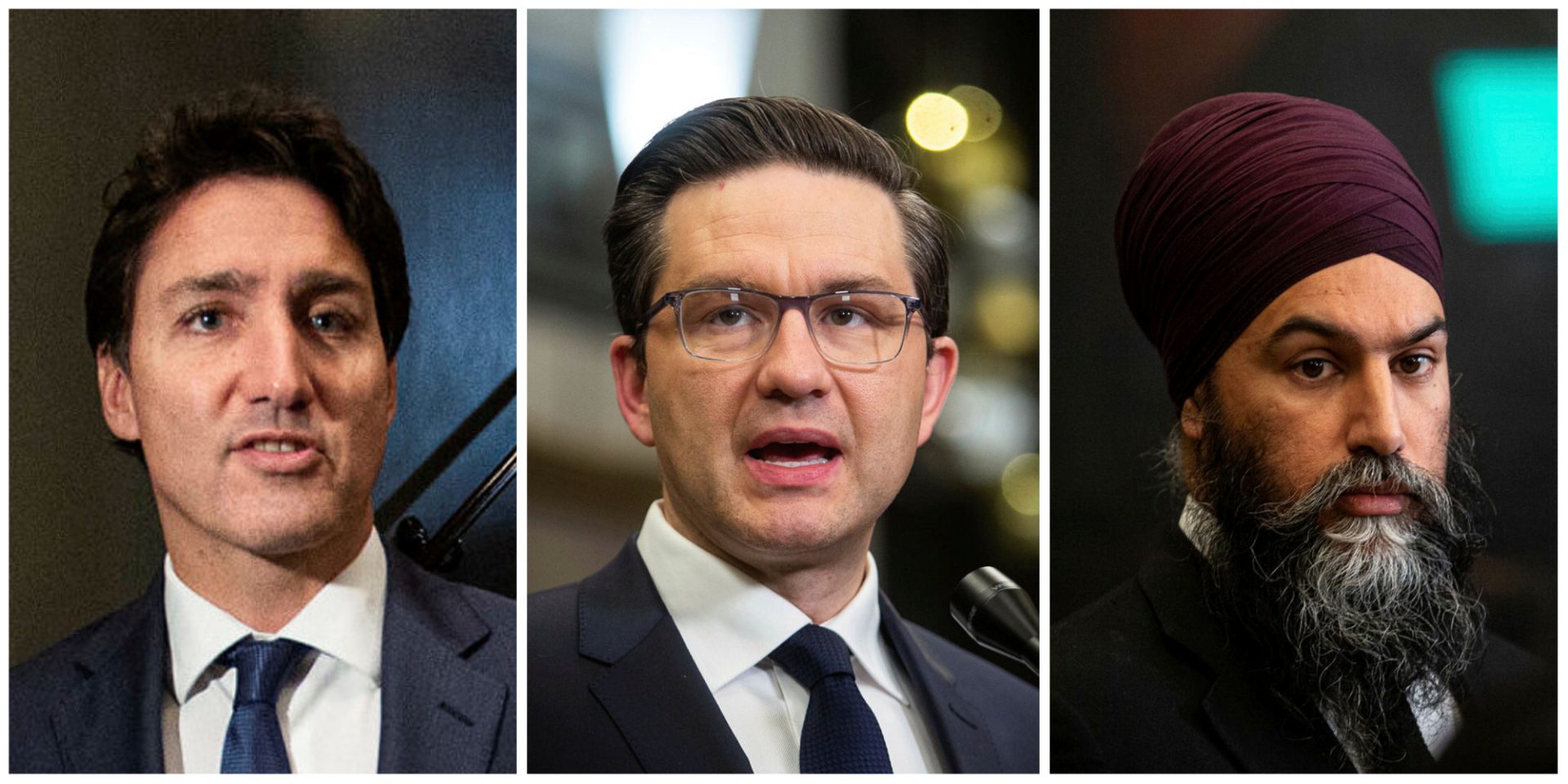Federal parties look poised to use new law to fight B.C. privacy regulations, court documents indicate

Federal political parties may use legislation passed this spring as the foundation for their argument that they should be exempt from British Columbia’s privacy laws, but privacy experts say the new law is woefully inadequate.
As political parties prepare to resume sparring in the House of Commons this fall, there is one matter on which they are in stark agreement: in November, the federal Liberal, Conservative, and New Democratic parties will appear side-by-side in a B.C. court as petitioners against a ruling that makes them subject to the province’s privacy laws when operating in that jurisdiction. The court date has recently been set for Nov. 20.
In an amended petition from the Liberal Party of Canada—filed to the B.C. courts on Aug. 28 and accessed by The Hill Times though B.C’s online court services portal—measures passed this spring in Bill C-47, the government’s budget implementation act, now play a key new role in the arguments the party is making in its petition about why it should not be subject to these laws. The Conservatives and NDP also filed new documents in August, but they currently remain sealed from online public access.
“It is fair to say that on this issue [the federal parties’] interests align to the detriment of the Canadian public,” said Adam Kardash, a partner with the law firm Osler, who serves as chair of its national privacy and data team. “The fact that they’re challenging this so vigorously is really something that all Canadians should be concerned about.”
C-47 contained a section that amended the Canada Elections Act to state that for federal parties to collect “personal information” about an “identifiable individual” they must “collect, use, disclose, retain, and dispose of personal information in accordance with the party’s privacy policy.”
The amended petition from the Liberal Party argues that the passage of C-47 “expressly confirmed Parliament’s intent” that the collection and use of personal information by the federal parties “be governed exclusively by federal law.”
This builds on the arguments it had made in its original petition prior to seeking an adjournment this spring, in which it argued that the B.C. privacy commissioner did not have jurisdiction to regulate federal parties.
However, many observers have argued that the laws the B.C. privacy commissioner is attempting to enforce are far more robust than the federal ones. They say this move by the federal parties amounts to an attempt to avoid being regulated by a substantive privacy regime.
Three private citizens launched complaint in 2019
The events that set the case in motion began in 2019, when three private citizens used B.C.’s Personal Information Protection Act to make a request to several federal political parties regarding what personal information about them these parties possessed. These citizens then filed a complaint with the Office of the B.C. Privacy Commissioner when they were unsatisfied with the response from the parties.
When the privacy commissioner’s office looked into the complaint, several of the federal parties objected, asserting the office did not have jurisdiction over them. That prompted the office to appoint a delegate, former B.C. privacy commissioner David Loukidelis, to rule on the matter.
In his March 2022 decision, Loukidelis found that B.C. privacy laws did apply to the federal parties. In response, the three major parties filed petitions to the B.C. courts to have the decision overturned, arguing that the province was interfering with the federal Parliament’s exclusive constitutional authority to regulate federal elections, which it does under the Canada Elections Act.
That trial was originally set to go ahead this spring, but the petitioners sought a last-minute adjournment. At that time, the federal Liberals had introduced Bill C-47, which contained the new federal legislation related to federal political parties and privacy.
Now, with C-47 passed, the parties appear ready to head back to court with the new legislation to bolster their case—arguing that C-47 further establishes Parliament’s intent to be the sole regulator of federal elections, negating the need for B.C. to enforce its privacy laws on the federal parties.
Claims about C-47 are ‘entirely without any merit,’ says privacy lawyer
However, according to Kardash, who has been practicing exclusively as a privacy lawyer for over two decades, the suggestion that the current approach at the federal level provides adequate privacy regulation for federal political parties “is entirely without any merit.”
Kardash said it is vital to have substantive privacy laws governing federal political parties because these organizations process a high volume of sensitive personal information, but right now the only requirement they face is to develop their own privacy policy, submit it to Elections Canada, and publish it online.

Kardash described a number of specific items that would be standard in most privacy laws, but that the federal parties are not presently subject to. Under current federal laws, the federal parties are not required to obtain consent when they collect, use, or disclose personal information. There are no data minimization obligations, which would limit data collection to information that is directly relevant and necessary to the activities carried out by the parties. The parties do not face any statutory obligation to safeguard the data they collect, and no obligation to notify individuals or an independent regulator if their data is breached. A data retention limitation does not exist, meaning the federal parties could keep personal information indefinitely, and Canadians do not have a statutory right to access, correct, or request deletion of the data. Finally, there is no oversight by the Office of the Privacy Commissioner of Canada, the regulatory body with the necessary expertise to oversee and act as the regulatory authority, said Kardash.
David Young, a privacy and regulatory lawyer, and the principal at David Young Law, offered a similar assessment of the deficiencies of C-47.

“It does practically nothing,” said Young. “That bill looks like all it was introduced [for] was to try to pre-empt this case.”
Young noted that B.C.’s privacy laws have a provision that if the federal government were to “occupy the field” by passing privacy legislation that provides equally robust regulatory measures, this would pre-empt the B.C. laws. However, in his view, C-47 falls far short of that.
Kardash said there is a standing question about whether B.C. should be regulating federal parties. However, despite that technical issue, he said the larger problem could be resolved if the parties simply put forward an adequate regime to govern their use of data.
“There is an open question as to what is the appropriate statutory instrument—whether federal or provincial—that will apply, but this issue could be easily put to bed if there was any interest amongst the federal parties by simply creating a federal statute that would just eliminate any uncertainty” that a robust regime is in place, said Kardash.
Confidence in political system is at stake, says privacy advocate
Vincent Gogolek, a retired lawyer and former executive director of the B.C. Freedom of Information and Privacy Association, said the matter reflects poorly on all of the federal parties.
“This is going to be a problem for the political parties as people become aware of this,” said Gogolek. “Confidence in our political system is not at its highest ever level … And the battle that the parties are putting up, and what has been brought forward in C-47, is not going to increase that confidence in the political system and those who are acting in it.
The Hill Times reached out to the Liberal Party, Conservative Party, and NDP for comment, but did not receive a response by deadline.
Gogolek said having a privacy policy that deals with the modern realities of data and advancing technology is something the public expects of any organization it is interacting with, whether that is a private business or a political party.
icampbell@hilltimes.com
The Hill Times






 LICENSING
LICENSING PODCAST
PODCAST ALERTS
ALERTS













